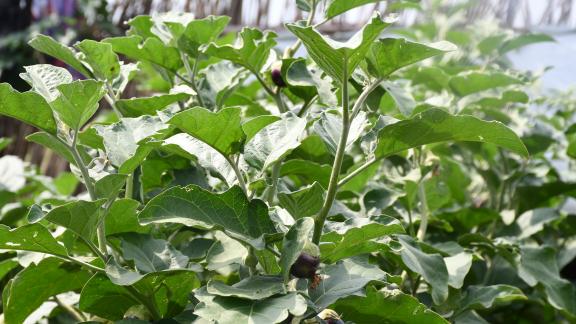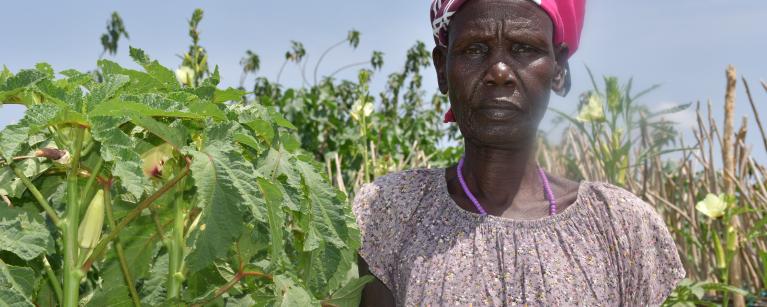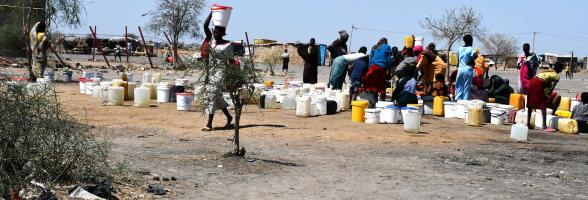“With the knowledge I got during the training, and seeing how my vegetables have flourished, I want to expand this garden to at least an acre so that I can support my family better.”
There is nothing more rewarding than for a farmer to see her crops growing healthy – ushering in the benefit of being able to meet other basic needs through selling the produce.
That is the joy, Nyahon Majak – a vegetable farmer has had herself go through since the day she took delivery of her first harvest to Akobo East Centre market.
Majak was earmarked to benefit from good agricultural practices (GAP) trainings and seed packages through Oxfam’s asset creation program that is being funded by the United Nation’s World Food Program (WFP), in Akobo East County of Jonglei state.
Armed with some basic knowledge on GAP – thanks to technical guidance from Oxfam’s food security and livelihood teams, Nyahon Majak embarked on increasing yields and acreage of her vegetable garden.
Her garden, located along the banks of Akobo River, is currently lush with a variety of vegetables, including okra, jute mellow kale, tomatoes and Amaranthus.
"This garden has supported my family a lot. I'm able to sell the vegetables and buy a gallon of Sorghum and other basic items like soap, salt and sugar and even some clothes for the children. Whenever I take the vegetables to the market, I’m able to earn up to SSP 20,000 (about 7 USD) from the daily sales. I'm grateful for the knowledge I received from Oxfam to start doing this kind of farming,” she said.
In rural communities in South Sudan where families live on less than 1-dollar per day, 7$ is seven times what they would have had to live on – a daily basis.
Encouraged by the increase in sales, Nyahon now plans on expanding her garden to at least an acre.
“Before I started farming here, I had my kitchen garden, but it was not helping much since the crops I plant sometimes does not yield and watering the vegetables becomes difficult. With the knowledge I got during the training, and seeing how my vegetables have flourished, I want to expand this garden to at least an acre so that I can support my family better,” said Nyahon.

Farming by the riverbanks has become one of the most profitable business ventures in Akobo East. Some farmers have since formed groups in order to enjoy working together and producing in larger quantities.
Peter Gatkuoth, a 64-year-old leader of Buore Group of farmers explained that farming as a group has enabled them save and borrow more money than when they worked as individuals.
“We have different group who go and sell in the morning and others go in the evening to sell our vegetables. We have divided the farm into different sections to enable us not to waste anything from the garden. Some days we are able to get up to SSP 200,000 from the sales. As a group we sit and agree which amount should be divided among us then the rest goes to our Village Savings and Loan Association,” he explained.
With support from the WFP, Oxfam in South Sudan is supporting 6,674 farmers with Asset Creation and Livelihoods activities including vegetable gardening in Uror, Nyirol, Duk, Bor and Akobo counties.
With increased needs in communities, funding to such resilience building activities is increasingly being welcomed especially following years of devastation from conflict and floods.

